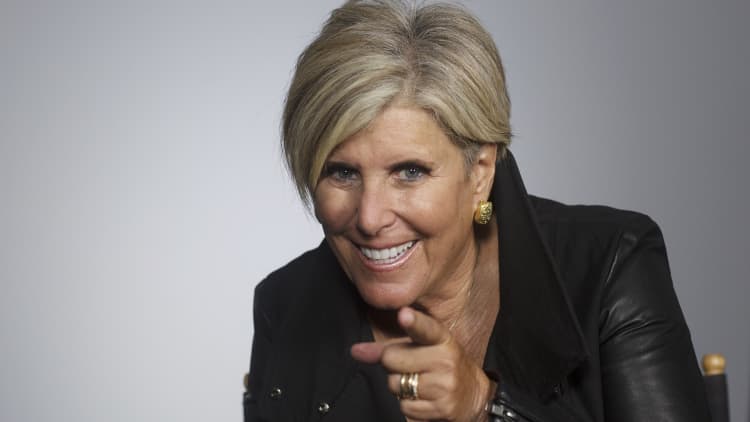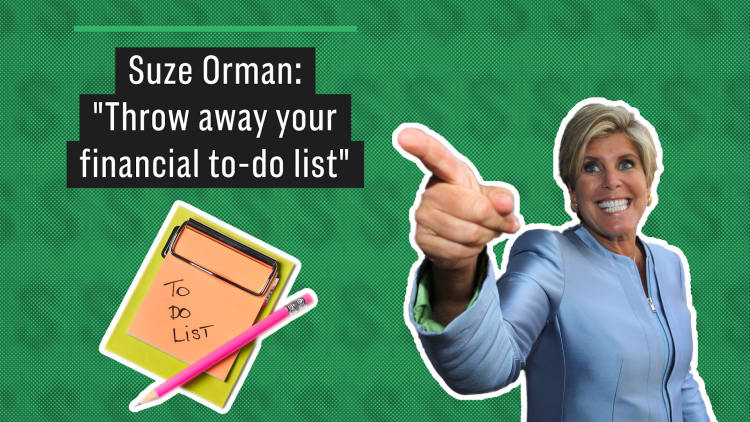Juggling financial responsibilities isn't easy. It can be hard to know where to focus and what to prioritize, Suze Orman, best-selling author, award-winning financial advisor and former CNBC host, writes in a recent blog post.
"You want to do what is best, but oftentimes, it's hard to figure out what is best," she writes. Is it "paying off debts, building an emergency cash stash," or should you have a different No. 1 goal, like "saving for retirement?"
Well, all of those things are important, but trying to do them all at the same time isn't wise. Instead of trying to tackle everything at once, Orman suggests, choose the one thing that "keeps you up at night," and first focus on that.
Of course, that doesn't mean ignore everything else, like pending bills or other payments coming due. But once you've covered the necessities, direct your attention to eliminating your main financial worry.

Focusing on one thing at a time is also an idea promoted by self-made millionaire Tony Robbins. While to-do lists can help you organize your priorities, he writes on his own blog, they can also "make you feel like you're being productive without actually accomplishing anything."
But when you get specific about a certain goal, he says, "it will provide you with much more motivation than a to-do list ever could."
Pick the one problem that would make you "feel smarter, stronger and more secure about your future" to solve, Orman writes, and hone in on that. "Don't think about what you think you should say," or what others need from you. "Focus only on you."

Perhaps your goal is to build an emergency savings fund, which could be essential in the case of a crisis, like an accident or sudden job loss. In that case, you'll want to have about eight-to-12 months' worth of savings to cover an unexpected emergency, Orman suggests.
Or maybe it's to start saving for retirement. In that case, experts advise that you aim to save 25 percent of your overall gross pay if you're in your 20s, or the equivalent of your annual salary by age 30.
Whatever your financial goal is, don't be discouraged if you don't achieve it overnight. "I am not suggesting you can snap your fingers and have it solved in a day, or week or month," writes Orman. It could be great to start small by re-evaluating how you spend, like "stopping yourself before every purchase and asking, 'Is this a need or a want?'" Or like "finding an extra $10 or $50 a week to put toward your goal."
If you do that consistently, she says, "you will find you have more money saved that can be redirected to whatever is keeping you up at night. It may still be months or years until you have achieved your ultimate goal, but it will put you on a path toward financial security."
Like this story? Like CNBC Make It on Facebook!
Don't miss: Financial expert Suze Orman: This one question about money always 'makes me crazy'
Video by Mary Stevens




